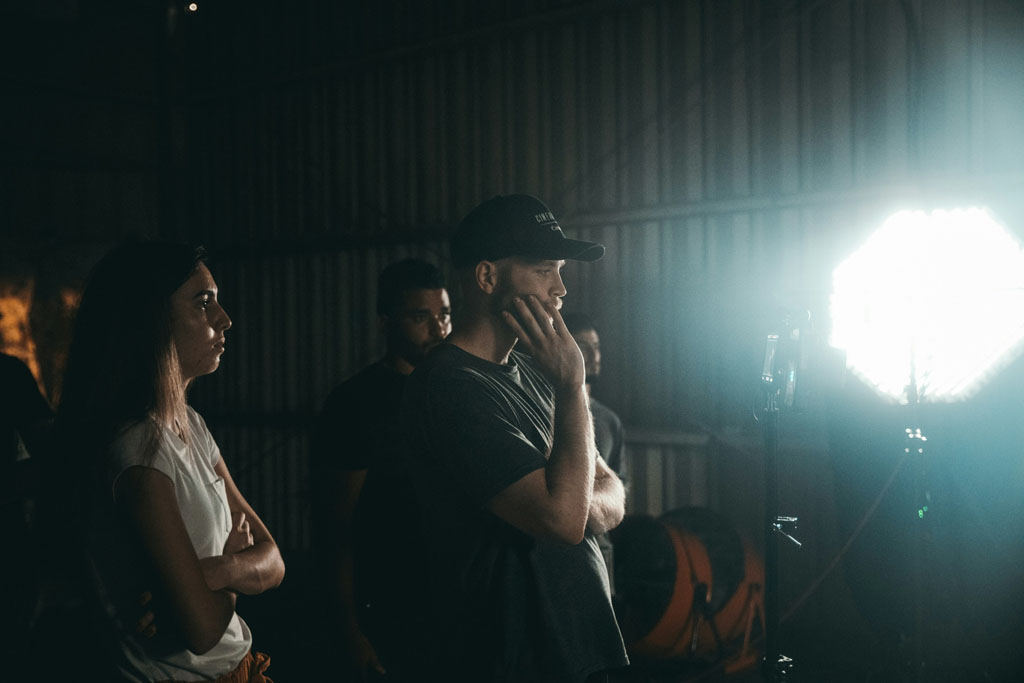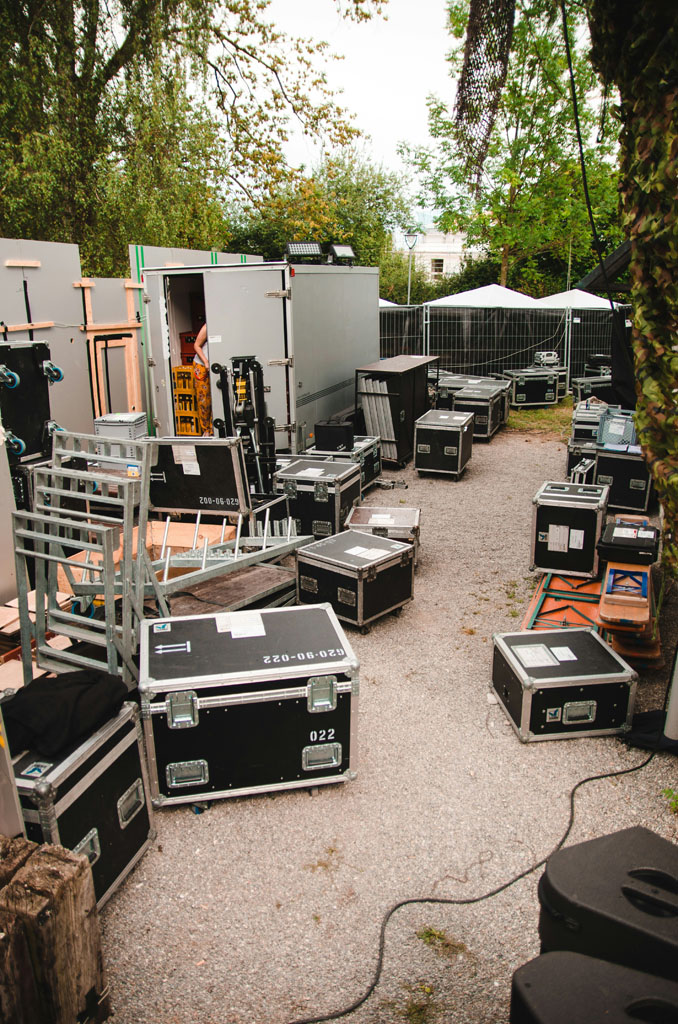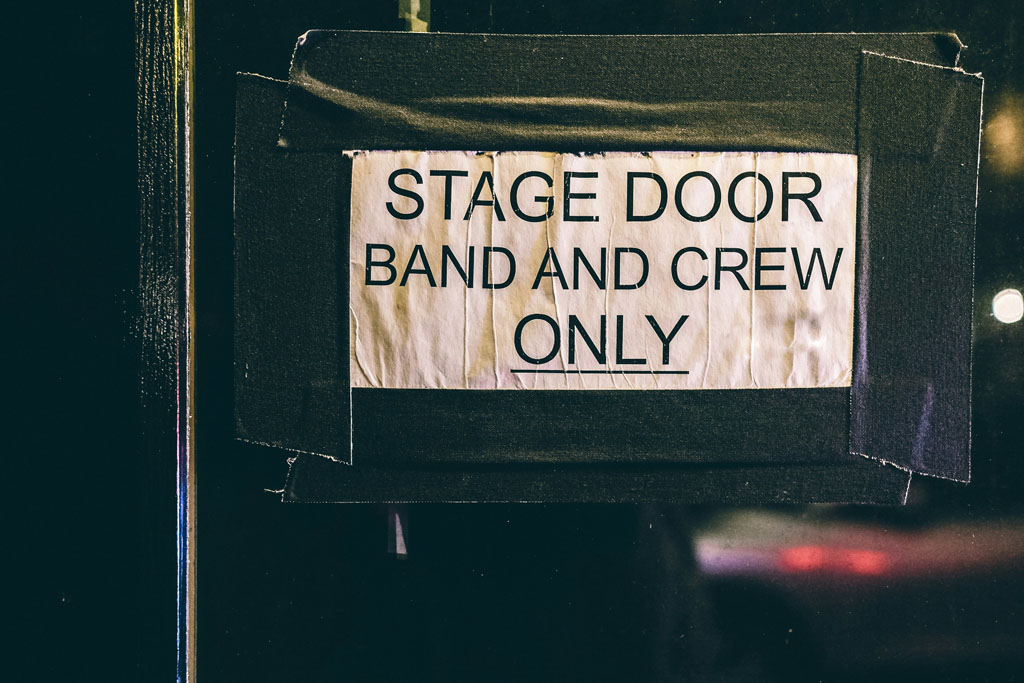LISTEN HERE
20 Mar 2024
PEOPLE ARE VALUABLE

Subscribe to CX E-News
The last few years, perhaps more so than ever before, certain people in our audio industry have become devalued, underpaid, and overworked, regardless of their level of expertise, years of experience, or credentials. I can’t think of another industry that does this. Moreover, no one in our industry seems inclined to talk about it, do anything about it, or in some cases even appreciate that this uncontrolled slide is destined to drive certain parts of our industry into the ground. Is this problem peculiar to Australia? Nope.
Is this perpetual slide the result of decades of record company neglect, where nowadays there’s little or no investment into unknown artists by anyone other than the artists themselves? To some degree, certainly.
Is it because every person and his or her dog has a recording studio at home, which allows them to be an engineer, a producer, a performer, and a mix engineer? (The person, I mean, not the dog.) No question.
Does the ubiquitous nature of the home studio owner/operator also insidiously create the false impression that paying someone else to engineer, mix, perform or produce music, constitutes a giant waste of money, i.e. a ‘luxury no one can afford’? Definitely.
So who is at fault here; who’s to blame for this sorry state of affairs, where 30 years ago there was money in our industry to pay a vast array of people to perform all the mechanical functions involved in making it tick, and now there’s almost none?

Was it, at first, the legislators in the US who allowed a couple of companies to buy almost every radio station in that country, rationalise its programming staff from hundreds down to one, thereby preventing DJs from ever again playing new, unprescribed music by an unknown band? Was it record companies leeching money from the industry? Was it the ‘digital revolution’, which made both the recording equipment cheaper and the music it produced valueless? Was it graduates from audio engineering schools flooding the job market that broke the camel’s back, or was the demise of small venues around the country that prevented unknown bands from finding their audience what did it? Was it, more recently, streaming services abandoning small artists in favour of giant lucrative ones, treating the fledgling artists with about as much respect as the fourth decimal point on a percentage calculator. I mean, who in their right mind thinks it’s fair or equitable for Tay Tay, for example, who could afford to bail out a small country, to earn money from an artist whose music doesn’t exceed 1,000 streams? It’s insane, and totally outrageous, but we cop it…
Clearly, it’s a complex combination of all the mechanical aspects of our industry (and a hundred other factors besides) that have led us down this sorry, inequitable path. All of us bear the collective responsibility to some degree or other. No one can be singled out – not easily anyway – and nothing will change unless there’s a concerted effort to make things better.
The Downward Spiral
There’s one distinction to draw here, however, that’s significant when using the term ‘audio industry’. There are several arms to this many-limbed beast, as I’ve said countless times before, and not all of them are on the skids.
On the contrary: if you’re a manufacturer, for example, or distributor of audio equipment, you’ll almost certainly be on a far better wicket than a recording musician or record producer.

Most musicians, recording studio owners, artists and producers live hand-to-mouth, mostly earning less income than a kid flipping burgers at McDonald’s. They drive old cars, wear old clothes, and have no superannuation. They certainly don’t drive around in Ferraris, like at least two Australian pro audio manufacturers and retailers (that I can think of) do.
That’s fine, of course. If these individuals have earned the money and want to drive around in such a vehicle, that’s entirely up to them, and good luck to them. I’m not concerned about the car they drive. It’s merely an indicator of where the money in our industry resides. Frankly – and to labour the point somewhat – I can’t think of one muso, producer, engineer or audio editor who wouldn’t laugh in your face if you suggested they buy a Ferrari as their next car purchase. And that includes several rock stars I know!
If you’re a ‘working’ musician, composer, producer, engineer, editor or in other ways involved on the ‘creative’ side of the industry, regardless of your level of experience, skillset, or credentials, the prospect of you increasing your earnings in our industry as you advance are extremely poor. Whether this cold fact is taught in the various audio schools around the country, I very much doubt it. So let’s mention it here, shall we?
Where once there were thousands of jobs, and by far the most common foot in the studio airlock, radio station foyer, venue or live production company was through a poorly paid apprenticeship, the numbers for which were self-regulated by businesses’ individual employment needs, these days there are vastly fewer jobs, and thousands upon thousands of well-meaning graduates, searching for jobs in this rapidly shrinking pool of opportunity. All this does is put severe downward pressure on wages for the people already involved.
The numbers tell the story. Are there jobs for all these graduates? Absolutely not. Would you be more employable in the wider workforce if you earned a Batchelor’s Degree in Western European Philosophy?

It would be a hair split
And for those who have carved out a living working on the creative side of our industry, either by employment, or more commonly, self-employment, the earnings have not grown, they’ve shrunk. Things have grown tougher, not easier, and even amongst the top echelon of audio professionals, the earnings have diminished to the point where many are now abandoning decades-long careers as their economic prospects hit home. It’s a crying shame.
Australia wastes its creative talent, callously throwing it on the scrap heap rather than celebrating it. Many other countries around the world do the same.

So Change What Exactly?
There are countless reasons why we find ourselves in this predicament, far beyond the commentary of this short article, but turning back the clock or moaning about ‘how things were before’ certainly won’t change anything. Au contraire, griping about things just makes it far worse.
But historical facts can sometimes provide a path forward, and it’s important to appreciate why things were better in decades prior, when that fact holds true.
However, it’s a very subjective truth to say that more people earned a middle-class wage in the audio industry in previous decades, when the opposite could also be strenuously argued: that indeed far fewer people even had access to recording facilities decades ago, let alone money for a costly film-clip or the prospect of that video being played on TV.
And in decades past, particularly last century, everything cost 100 times more than it does now: ads on community radio cost thousands, billboards on the street were a similar sum (which also included the very real prospect of you getting arrested by police or fined by local council). There were no such things as free mailing lists, video streaming platforms or global portals through which bands could sell their wares. Studios cost thousands per day, tape was 300-odd bucks for 15 minutes at 30IPS, and PA hire was exorbitant. Even entry to gigs was significantly more than it generally is today, particularly if you factor in inflation.
In short, there’s no straight line of logic to say that everything is worse now than in past decades. There’s far more complexity to the story than that.
But I think generally we value people and their skills far less nowadays and that’s harmful to the health and wellbeing of our industry, as well as detrimental to the wider community and Australian culture.
I don’t expect things to turn around any time soon, but it would be nice – once in a while at least – to see a bit more honesty coming from the healthier arms of our industry about where things stand. Wouldn’t it be nice, for example, to see an ad from a pro audio equipment manufacturer that read something like this: “Our new DAW software, in the hands of a clueless nitwit, isn’t gonna shake the audio industry to its core, but a great mix by a professional engineer just might.” Or maybe a venue owner might sing the praises of the FOH engineer who mixed the incredible show at the venue last weekend on their Facebook page.
Or perhaps some of the more lucrative arms of our industry might wake up one day and realise that the only reason they are successful at selling their wares is because there are still people out there using their gear to produce stellar audio outcomes. If they all disappear because people are financially ruined by the very same industry, the manufacturers, distributers and retailers will be next.
They say that in a gold rush you should sell shovels. But when the rush ends, so does the market for shovels.

People matter in the wider audio industry, and it’s high time we stood up collectively and created a more resilient workplace, where people might get paid two or three times what they did in 1984, not thirty percent less. It’s unsustainable – has been for 20 years. We can’t all drive Ferraris, no one is expecting that, but I’d like to think that 10 years from now, talent in our industry is in some structural way financially rewarded, regardless of the role.
Andy Stewart owns and operates The Mill in Victoria, a world-class production, mixing and mastering facility. He’s happy to respond to any pleas for pro audio help…
contact him at: andy@themill.net.au or visit: www.themill.net.au.
Subscribe
Published monthly since 1991, our famous AV industry magazine is free for download or pay for print. Subscribers also receive CX News, our free weekly email with the latest industry news and jobs.






